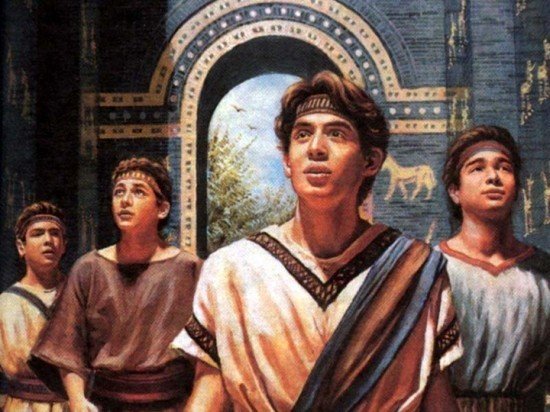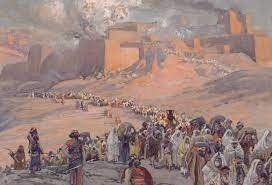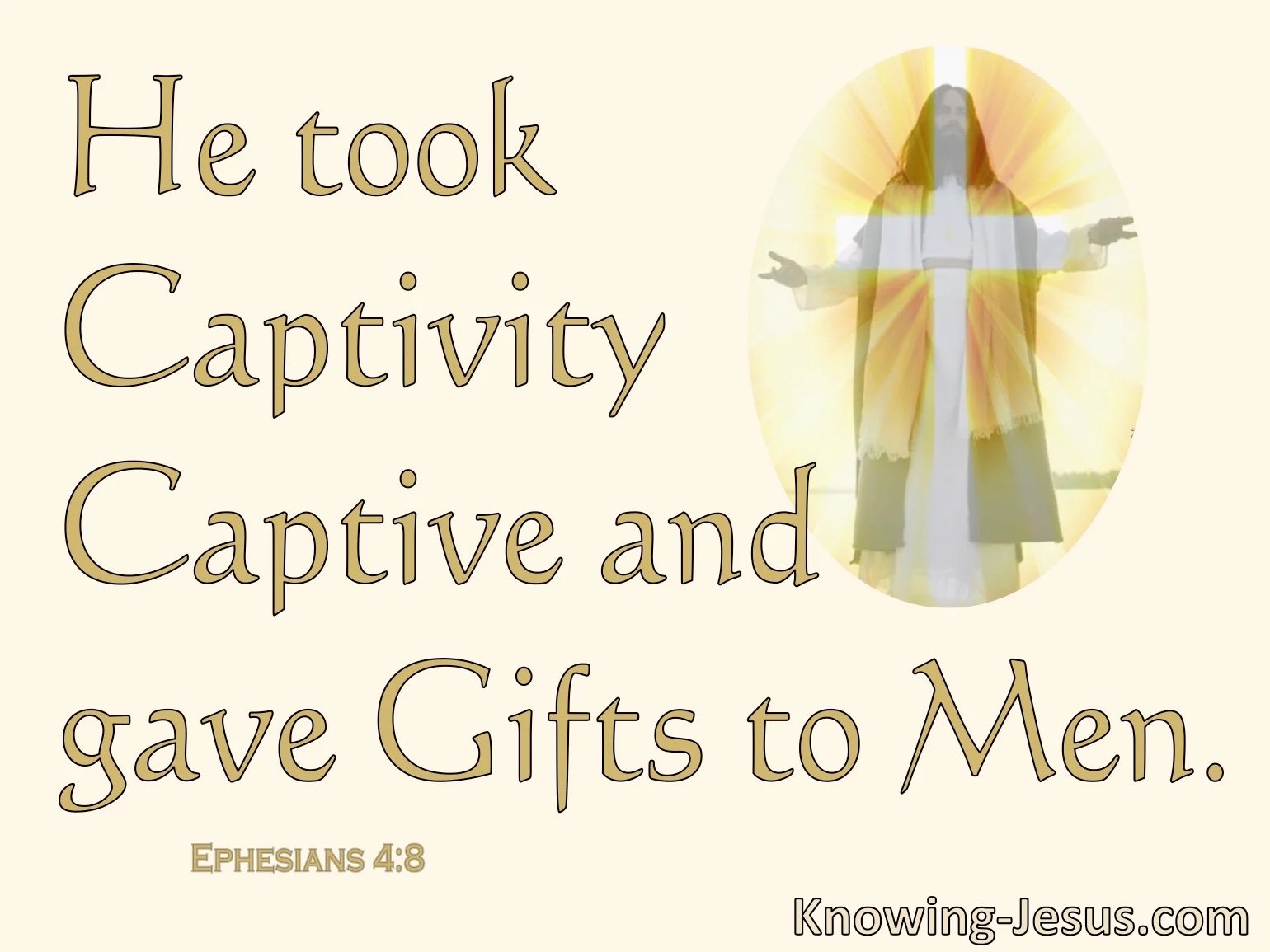Spiritual renewal is understood as a transformative journey that invites us to shed our old selves and embrace a new identity in Christ, as articulated in Ephesians 4:17-24. This passage urges believers to abandon the futility of their former ways and be renewed in the spirit of their minds, putting on the new self created to be like God in true righteousness and holiness. This process is an ongoing occurrence which the believer in Christ continuously cycles through in the Christian Life. It is a cycle that only finds its end as we stand before the Lord after our death. Even so, this process, called sanctification, which is a fancy theological term for undergoing personal transformation by the power of the Holy Spirit and our faithful obedience, is littered with a bountiful harvest of joy, hope, and love. Richard Lovelace, in his insightful book, The Dynamics of Spiritual Life, elaborates on this concept by identifying the Preconditions of Renewal, the Primary Elements of Renewal, and the Secondary Elements of Renewal that took place not only throughout the biblical story, but throughout church history.1
The Preconditions of Renewal begin with an awareness of the Holiness of God and the depth of our sin. If we aren't aware of our need, then God's solution will have little appeal to our hearts, minds, and wills. Calvin, in talking about knowledge of self and of God, states it this way:
"Our wisdom, in so far as it ought to be deemed true and solid Wisdom, consists almost entirely of two parts: the knowledge of God and of ourselves. But as these are connected together by many ties, it is not easy to determine which of the two precedes and gives birth to the other. For, in the first place, no man can survey himself without forthwith turning his thoughts towards the God in whom he lives and moves; because it is perfectly obvious, that the endowments which we possess cannot possibly be from ourselves; nay, that our very being is nothing else than subsistence in God alone. In the second place, those blessings which unceasingly distill to us from heaven, are like streams conducting us to the fountain. Here, again, the infinitude of good which resides in God becomes more apparent from our poverty. In particular, the miserable ruin into which the revolt of the first man has plunged us, compels us to turn our eyes upwards... For as there exists in man something like a world of misery, and ever since we were stript of the divine attire our naked shame discloses an immense series of disgraceful properties, every man, being stung by the consciousness of his own unhappiness, in this way necessarily obtains at least some knowledge of God. Thus, our feeling of ignorance, vanity, want, weakness, in short, depravity and corruption, reminds us, that in the Lord, and none but He, dwell the true light of wisdom, solid virtue, exuberant goodness. We are accordingly urged by our own evil things to consider the good things of God; and, indeed, we cannot aspire to Him in earnest until we have begun to be displeased with ourselves. For what man is not disposed to rest in himself? Who, in fact, does not thus rest, so long as he is unknown to himself; that is, so long as he is contented with his own endowments, and unconscious or unmindful of his misery? Every person, therefore, on coming to the knowledge of himself, is not only urged to seek God, but is also led as by the hand to find him."2
Thankfully, the knowledge of these realities do not put God's elect in an irredeemable box of despair. Lovelace delineates how the Lord has providentially executed His saving grace via the Primary Elements of Renewal throughout time despite the knowledge of our fallen selves.
The Primary Elements of Renewal emphasizes the necessity of a personal encounter with God’s grace, highlighting how an authentic relationship with Him ignites genuine change within our hearts. In particular, the doctrines of Justification, Sanctification, the indwelling spirit, and knowing the authority we have in the spiritual conflicts of our lives are central to our ongoing renewal. Lovelace states that these elements provide 'an in depth presentation of the gospel' to the core of who we are. This phase of process places a high emphasis upon what the Triune God has initiated, completed, and continues to provide by the redemptive work of Jesus Christ by the Holy Spirit. Even so, the God-driven activity in this phase occurs with the participation of His redeemed people responding to His gracious redemption, reconciliation, and restoration in their lives. This continuous and interdependent scenario is in line with the Apostle Paul's description in Philippians 2:12-13:
Therefore, my beloved, as you have always obeyed, so now, not only as in my presence but much more in my absence, work out your own salvation with fear and trembling, for it is God who works in you, both to will and to work for his good pleasure.
The Secondary Elements of Renewal encompasses the ways in which collectively and individually God nurtures our spiritual growth and sustains our renewal over time. Disciplines such as Missions, Prayer, Community, Dis-enculturation, and Theological integration put the Church and its members 'in step' with what the Triune God is doing within all of creation. In particular, it is our engagement in these endeavors that the Lord brings about what he stated in Ephesians 1:7-10:
"In him we have redemption through his blood, the forgiveness of our trespasses, according to the riches of his grace, which he lavished upon us, in all wisdom and insight making known to us the mystery of his will, according to his purpose, which he set forth in Christ as a plan for the fullness of time, to unite all things in him, things in heaven and things on earth."
By integrating these biblical principles, and Lovelace's insights drawn from Scripture, we can cultivate a deeper awareness of our need for renewal and actively participate in God's transformative work in our lives. Perhaps a better way to state this hope is to keep ourselves engaged with where the Lord has directed us and states that He will be present with us in. While a campus minister in the 1990's I used a common refrain to point out how the Lord would bring about His covenantal promises, via marriage, if my disciples would simply be about God's purposes. The illustration went something like this: "if you are running with and for the Lord, on the path he has laid before you, the chances of running into God's best provision of a Godly mate for you are much higher than if you were trying to find that very same provision at the uptown bars where all kinds of temptations and sins are being carried out. It's not that it is impossible to find your future mate in the faith at these locations, but one's chances go down considerably in places where the Lord is not going to be condoning much of the activity in that location. So why not go and do the things, in the places, that the Lord has called us all to? If both man and woman were to do so, their chances of 'bumping into' God's best for their lives goes up exponentially." In the same way, as it relates to ongoing spiritual renewal, if the believer and church were to commit themselves to the Lord's purposes and presence, then we are all certainly more likely to experience the promises given to us in Christ and by the Holy Spirit. Paul states it this way in speaking about life in the Spirit:
"Therefore do not be foolish, but understand what the will of the Lord is. And do not get drunk with wine, for that is debauchery, but be filled with the Spirit, addressing one another in psalms and hymns and spiritual songs, singing and making melody to the Lord with your heart, giving thanks always and for everything to God the Father in the name of our Lord Jesus Christ, submitting to one another out of reverence for Christ." Ephesians 5:17-21
"But I say, walk by the Spirit, and you will not gratify the desires of the flesh. For the desires of the flesh are against the Spirit, and the desires of the Spirit are against the flesh, for these are opposed to each other, to keep you from doing the things you want to do. But if you are led by the Spirit, you are not under the law. Now the works of the flesh are evident: sexual immorality, impurity, sensuality, idolatry, sorcery, enmity, strife, jealousy, fits of anger, rivalries, dissensions, divisions, envy, drunkenness, orgies, and things like these. I warn you, as I warned you before, that those who do such things will not inherit the kingdom of God. But the fruit of the Spirit is love, joy, peace, patience, kindness, goodness, faithfulness, gentleness, self-control; against such things there is no law. And those who belong to Christ Jesus have crucified the flesh with its passions and desires. If we live by the Spirit, let us also keep in step with the Spirit. Let us not become conceited, provoking one another, envying one another." Galatians 5:16-26
May the Lord empower us to commit ourselves to this sacred journey, allowing the Holy Spirit to guide us toward a life characterized by holiness, purpose, and abundant joy.
1Lovelace, Richard, Dynamics of Spiritual Life, Inter-Varsity Press, Downers Grove, Ill., 60515, 1979, page 75
2Calvin, John, Institutes of the Christian Religion, 1599, Book 1.1.1-2,





